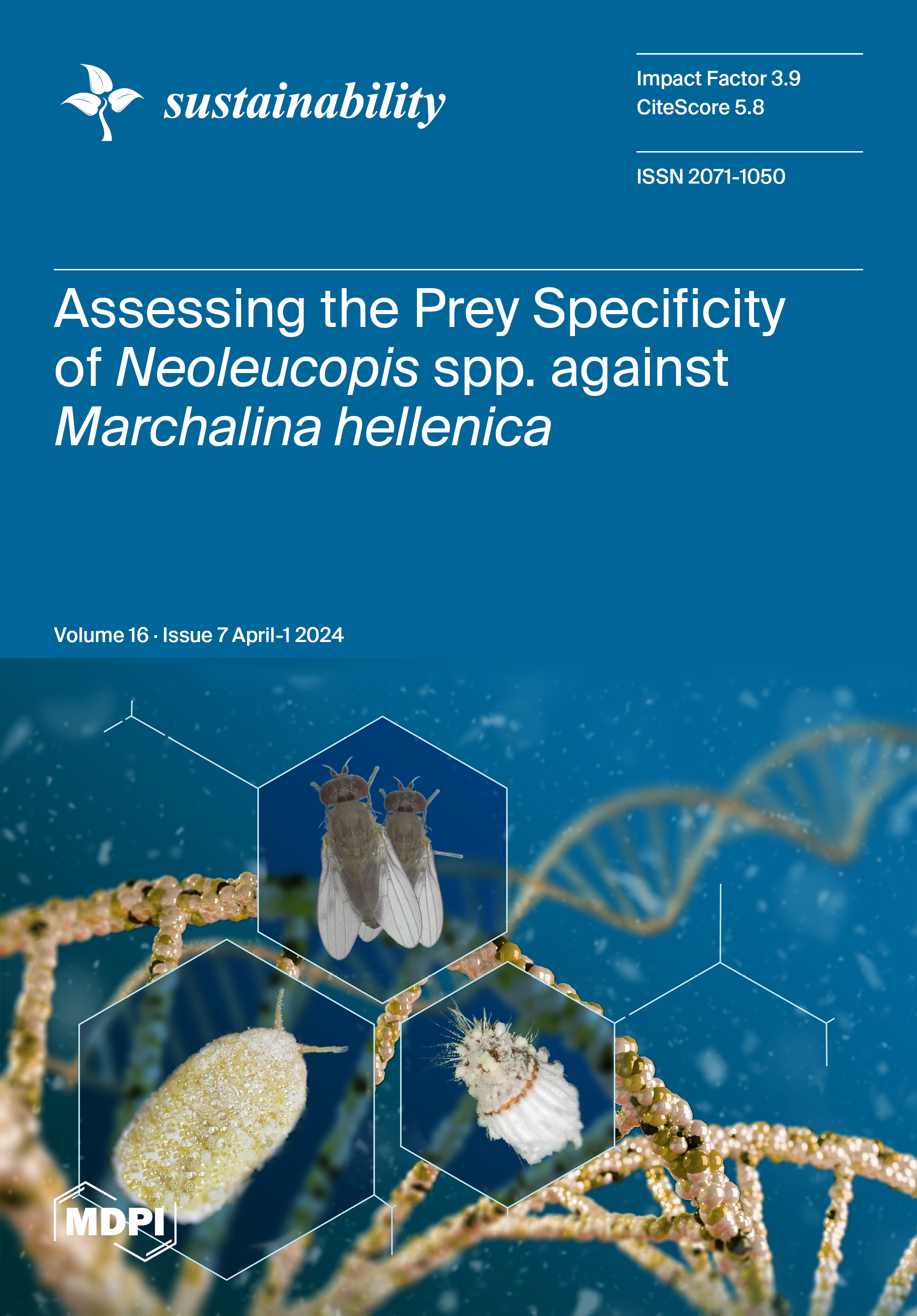The Agricultural University of Athens has accomplished a significant distinction.

Part of a PhD thesis of the Agricultural University of Athens has been published on a scientific Journal. Specifically, the respected Journal Sustainability, pertaining to the environmental sciences with Impact Factor valued at 3.9, has selected enriching its cover with part of the PhD thesis, elaborated by Ms. Nikoleta Eleftheriadou, a PhD Student of the Agricultural University of Athens, onto the Volume 16, Issue 7, released in April 2024 (https://www.mdpi.com/2071-1050/16/7). The particular doctoral dissertation is being conducted under the supervision of Mr. Nikolaos Kavallieratos, Associate Professor at the Agricultural University of Athens.
The thesis, entitled: {"Assessing the prey specificity of Neoleucopis spp. against Marchalina hellenica", carried out by Nikoleta Eleftheriadou, Nickolas G. Kavallieratos, Chrisovalantis Malesios, M. Lukas Seehausen, Marc Kenis, Greg Lefoe, Umar Lubanga and Dimitrios N. Avtzis, 2023, Sustainability 16 (7): 2756}, has been selected amongst the astonishing number of 496 doctoral dissertations, which are published on the current issue of the Journal (https://www.mdpi.com/2071-1050/16/7/2756). The study explores the complex dynamics of the invasive coccoid insect called Marchalina hellenica Gennadius (Hemiptera: Marchalinidae) and its natural pests in their natural habitat. Marchalina hellenica is a honey bee insect, which exists in Greece and Turkey without being a threat. However, that insect has invaded Italy, Croatia and Australia, wherein it causes serious harm to pine trees.
The importance of the thesis is associated with the discovery of a new species of insect in science, related to Neoleucopis kartliana. That new species is also a predator of Marchalina hellenica, while being named provisionally as Neoleucopis n. sp. B. Furthermore, as far as the implementation of the biological control of Marchalina hellenica is concerned, the detection of its natural pests on its own will not suffice. One of the most fundamental experiments which are to take place, deals with the prey specificity of the two predators (Neoleucopis kartliana και Neoleucopis n. sp. B), in order to evaluate the possibility of existence of collateral damage, by means of their intentional introduction into a new environment. By a thorough experimentation, it has been examined whether the two predators would choose to be fed only by the target insect (Marchalina hellenica), or even by a non-target insect (Icerya purchasi). Finally, it has been proved that the two species of predators would rather be fed on and survive better, when this is achieved by the target insect (Marchalina hellenica), rather than attain this by the non-target insect (Icerya purchasi). The results of the present study highlight that the two species of predators could be used for the biological control of Marchalina hellenica across the areas it has intruded, with a view to protecting the endangered forest ecosystem



